Navigating disputes with subcontractors can be a daunting task, but it's essential to tackle these issues head-on to maintain a productive working relationship. Effective mediation is a powerful tool that can help both parties find common ground and resolve conflicts amicably. By engaging in open dialogue, both contractors and subcontractors can clarify misunderstandings and reach mutually beneficial agreements. If you're interested in exploring practical mediation strategies, keep reading for helpful insights!
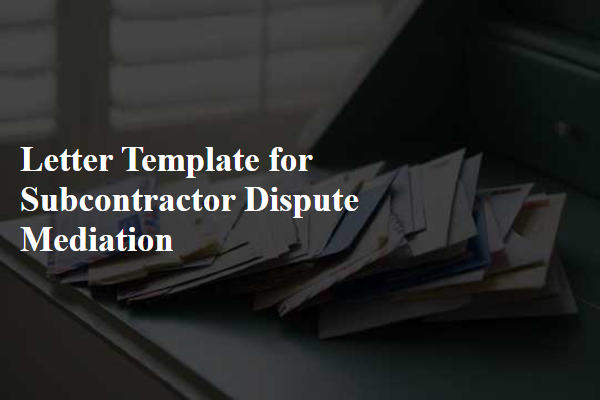
Introduction and Party Identification
Introduction to subcontractor dispute mediation is essential for addressing conflicts effectively. The mediation process allows for constructive dialogue between involved parties. This mediation typically includes primary stakeholders such as the contractor (general contractor managing the project) and the subcontractor (specialized labor provider). Identification of parties is crucial, including specific names, business addresses (e.g., City, State), and licensing details to clarify roles. Establishing a clear understanding of the project in dispute--often located at a designated site or contract number--enhances communication and outlines the context of the dispute. Effective mediation aims to resolve issues amicably, promoting continued collaboration and project success.
Description of Dispute
Subcontractor disputes often arise in construction projects, impacting timelines and budgets significantly. In a recent case involving a subcontractor (XYZ Construction Services), work performed on the Smith Avenue Commercial Development project was deemed unsatisfactory due to delays exceeding two months (original timeline set for August 2023). Issues include failure to comply with project specifications as outlined in contract documents, such as the American Institute of Architects' guidelines and inadequate quality of materials used. The general contractor, ABC Builders LLC, incurred additional costs exceeding $25,000 as a result of hiring alternative subcontractors to rectify these issues. This mediation seeks to address these grievances, ensure compliance with quality standards, and discuss potential adjustments to contract terms, including payment disputes totaling $15,000 for incomplete work.
Proposed Solutions or Resolutions
In subcontractor dispute mediation, proposed solutions must address key issues such as project timelines, budget constraints, and quality standards. Effective communication between parties often leads to successful resolutions. For instance, submitting a revised project schedule (with measurable milestones) can resolve delays affecting overall project completion, particularly in construction projects valued over $1 million. Additionally, addressing financial concerns through negotiation of outstanding payments, considering industry standards, can facilitate amicable agreements. Establishing a joint inspection protocol ensures compliance with quality benchmarks, enhancing trust and collaboration. Lastly, implementing neutral mediation facilitation encourages transparency, addressing grievances in a systematic manner to restore professional relationships.
Request for Mediation Meeting
Subcontractor disputes can arise from various issues, such as payment discrepancies, project delays, or breaches of contract terms. A mediation meeting aims to resolve these conflicts amicably and efficiently. A mediation meeting request should include essential details such as meeting date, location (e.g., a conference room at a specified address), and parties involved (contractor, subcontractor, mediator). Clear descriptions of the dispute and desired outcomes enhance understanding of the need for mediation. Selecting a qualified mediator with experience in construction disputes can significantly impact the meeting's success. The process promotes collaboration and can often lead to mutually beneficial solutions, preserving working relationships and minimizing legal costs.
Conclusion and Contact Information
In subcontractor disputes, mediation aims to resolve conflicts efficiently while preserving business relationships. Successful mediation relies on clear communication and a willingness to compromise. Schedule a follow-up meeting to discuss outcomes and next steps. Contact details for continued dialogue: John Smith, Project Manager, email: john.smith@example.com, phone: (555) 123-4567. Address the mediation process at 100 Main Street, Hometown, State, ZIP Code. Keep records of all correspondence related to the dispute for reference.

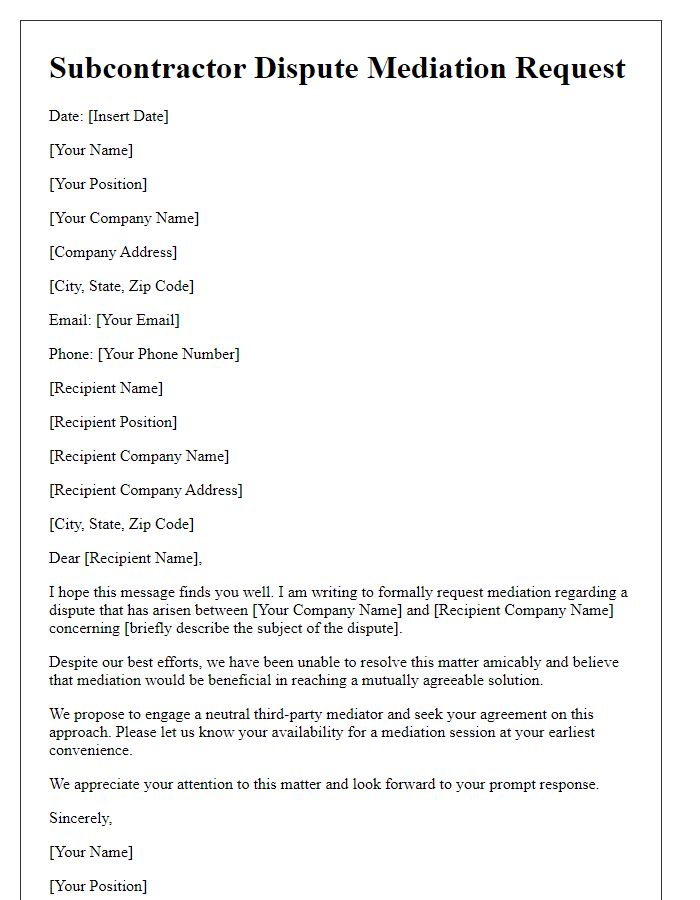
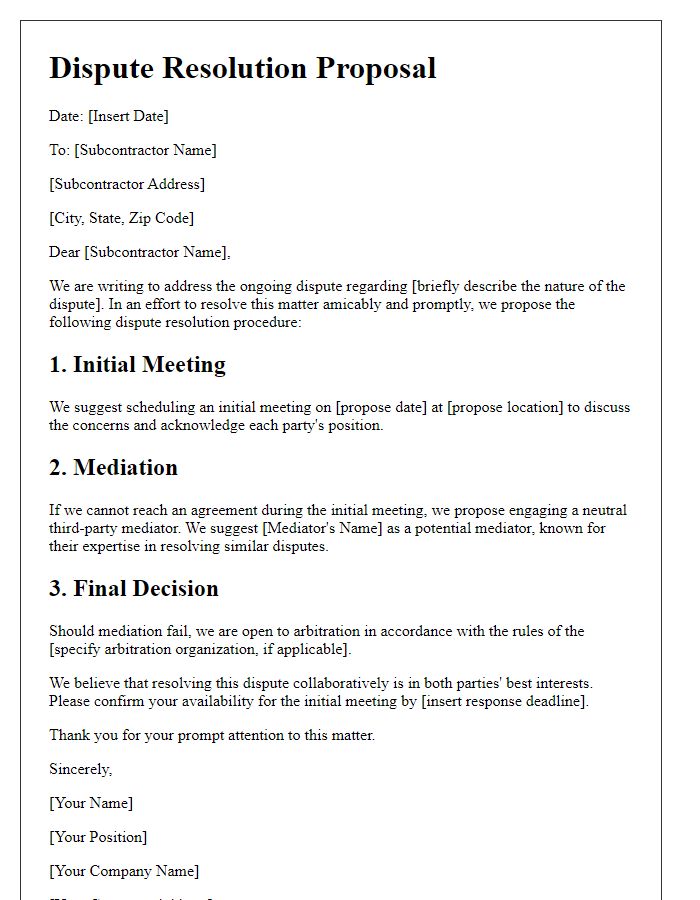
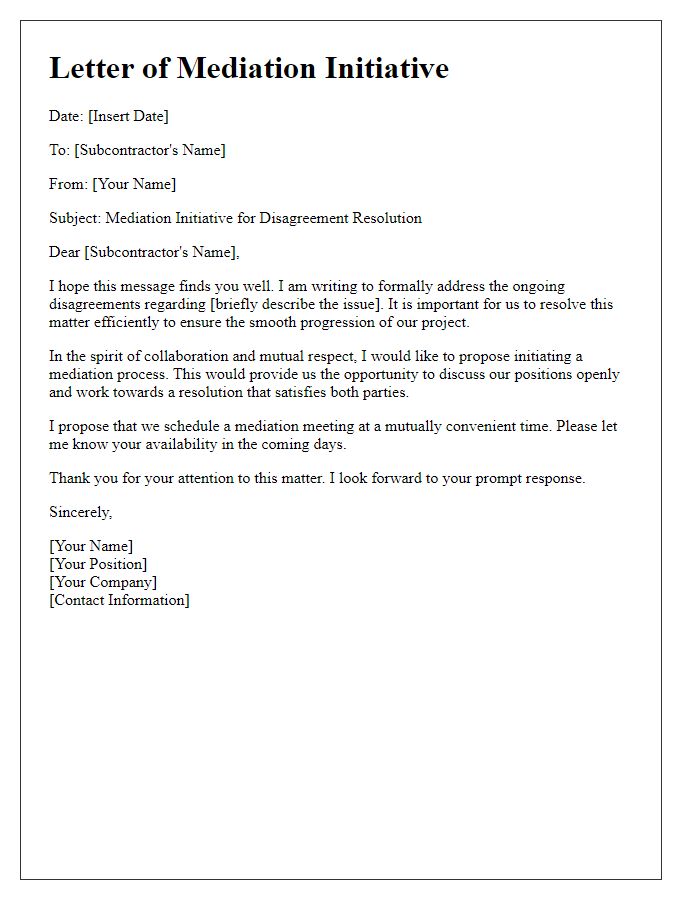
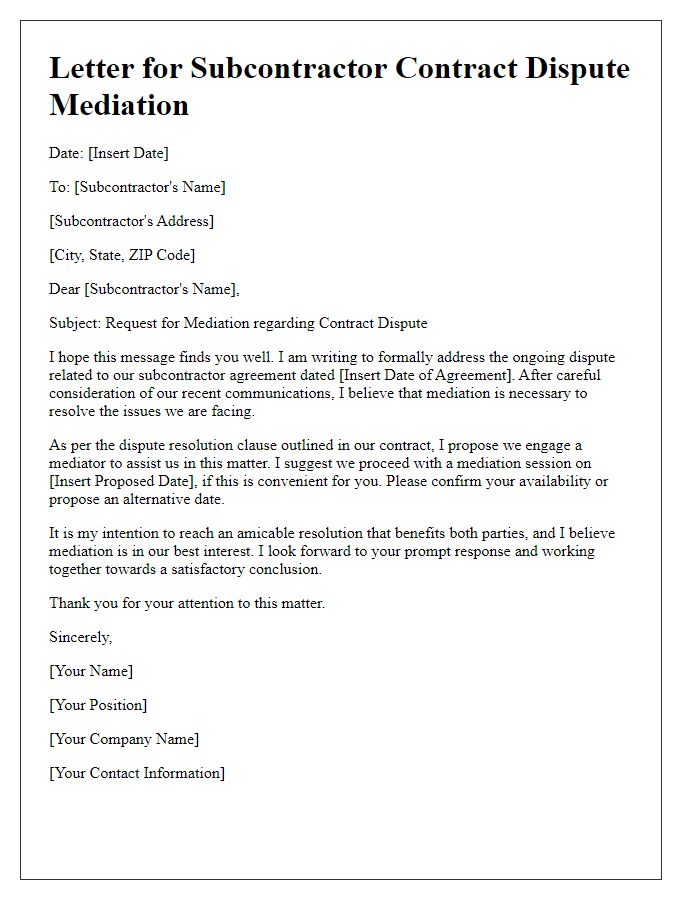
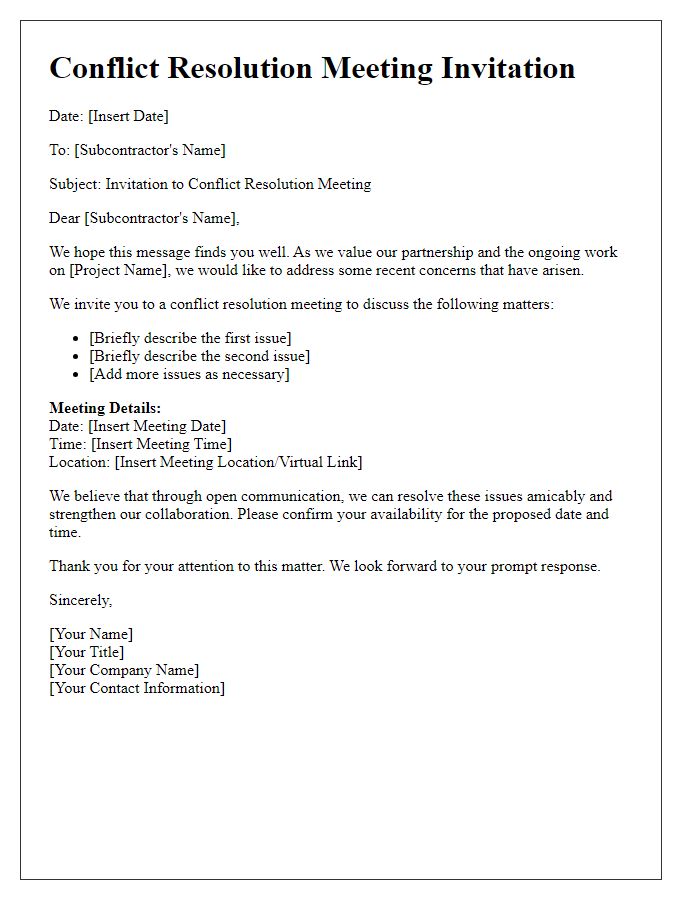
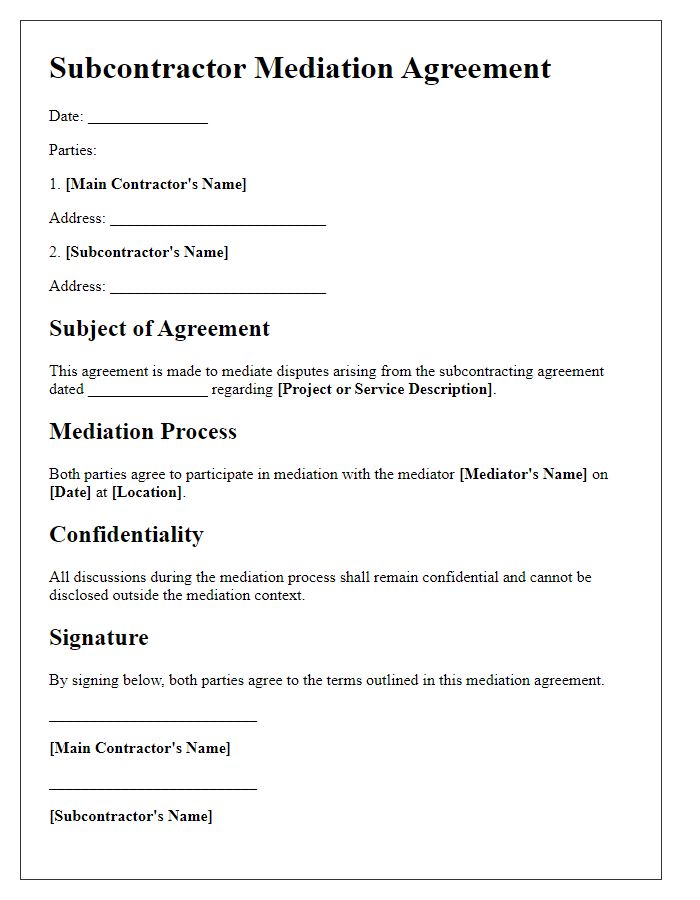
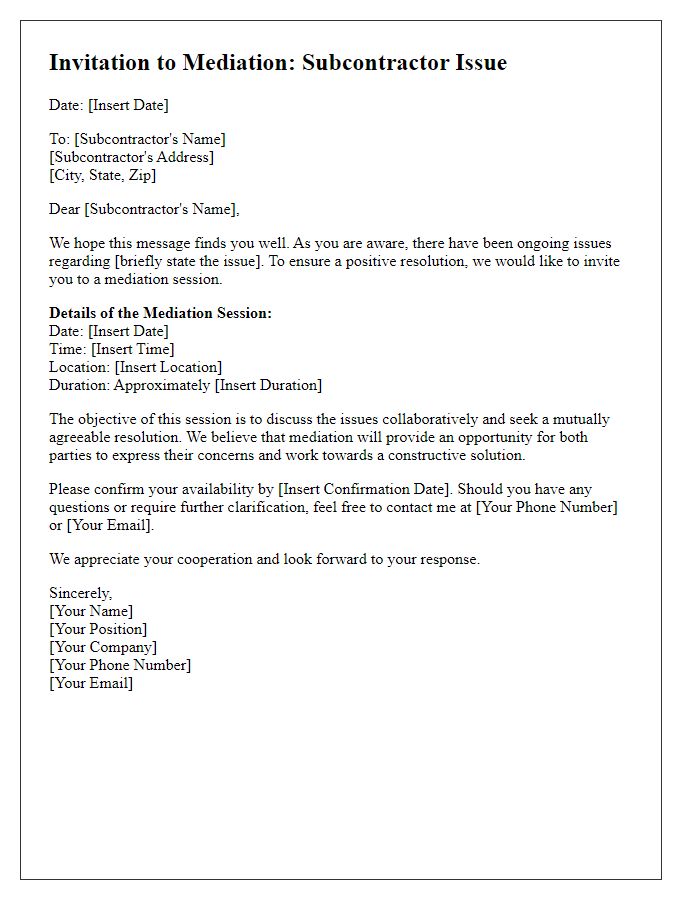
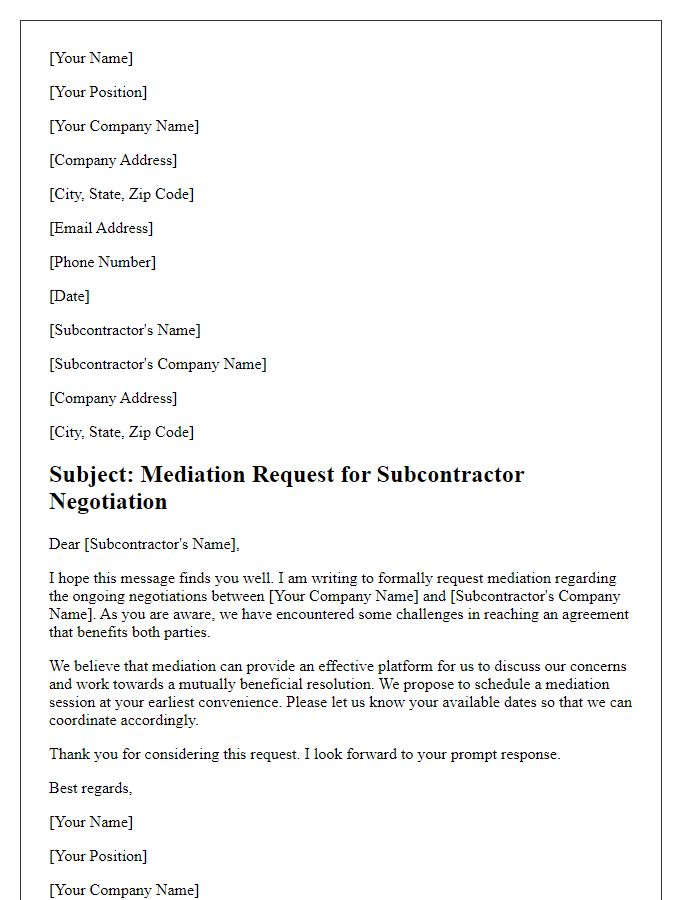
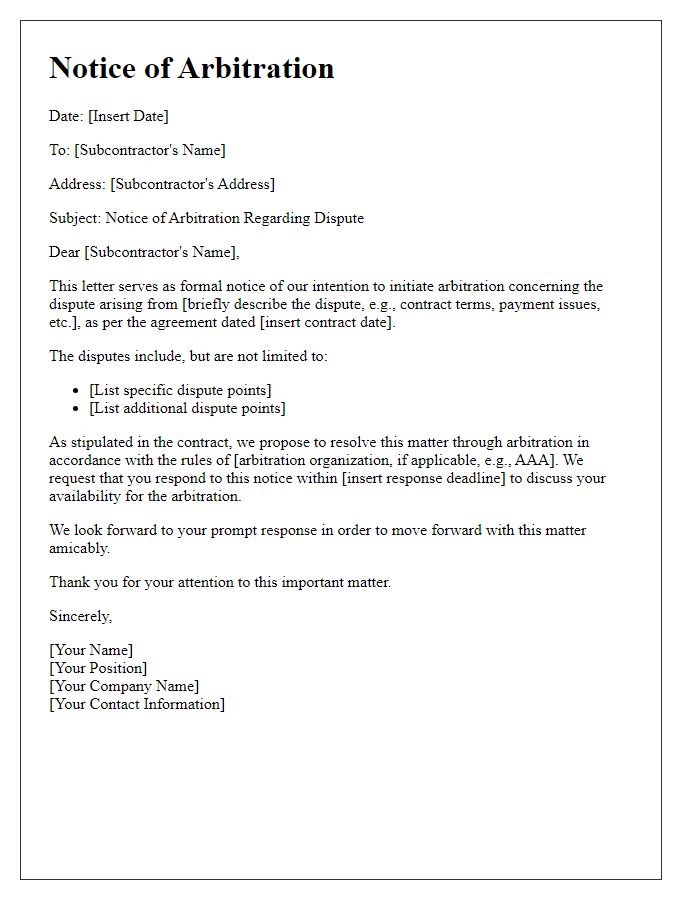
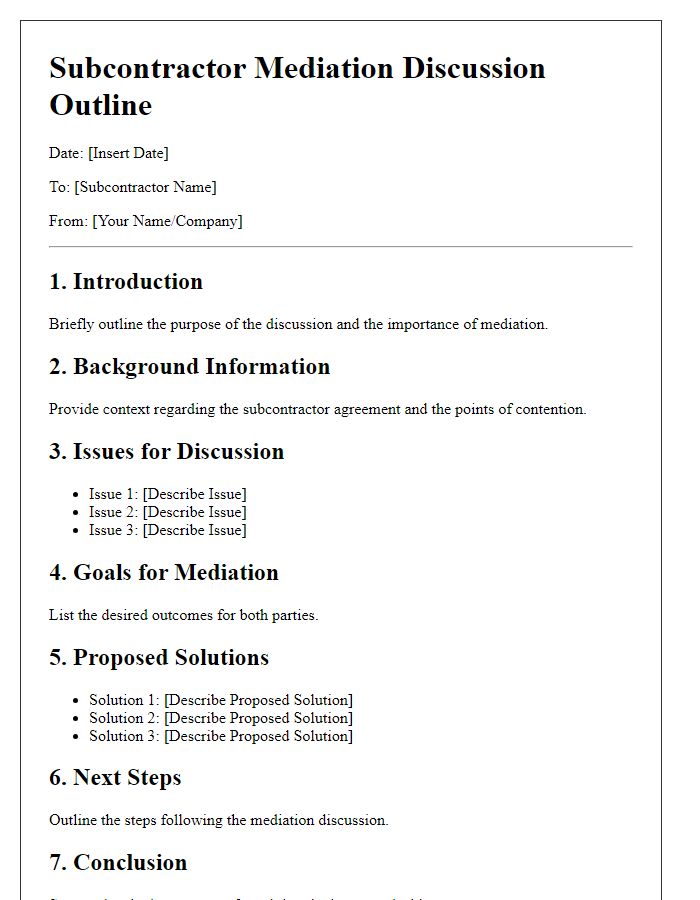

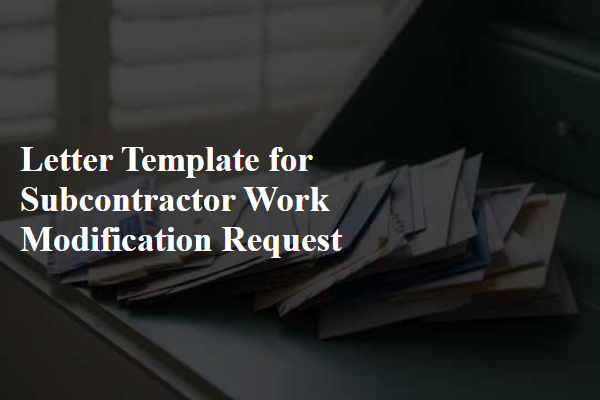
Comments